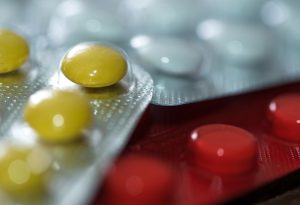In this Article
It could take up to half a week after delivery before any milk is available in a mother’s breast. Certain medical complications and medical birthing procedures can delay the onset of lactation. It has also been noted that up to twenty-five percent of all mothers may experience a delay in lactation of more than three days. This, however, does not mean that lactation will not set in, but it can be a cause for concern. Read on to understand about delayed lactation, its possible causes, and remedies.
What Triggers Breast Milk to Come in?
Prolactin, Cortisol, Oxytocin and Insulin are hormones that are essential for the production of breast milk, and are generated in a woman’s body throughout her pregnancy. The production of breast milk, however, is only triggered 30 to 40 hours after birth. The hormone progesterone, which inhibits the production of breast milk, drops after the baby is born and the placenta separates from the uterus. This reduction in progesterone triggers the production of breast milk.
When Does Breast Milk Come in After Delivery?
A couple of days after delivery, the mother’s breast begin to feel full; this is the first sign that her milk is coming in. Prolactin, a hormone that signals the mother’s body to produce milk, rises throughout the duration of the pregnancy. The effects, however, are negated by the production of another hormone, progesterone. This is produced by the placenta, which inhibits the body from effectively responding to prolactin. The normal production and supply of breast milk in the mother’s body only begins when the baby is born, and the hormones of the placenta have left the mothers body. Pregnant women observe that sometimes their breasts are leaking a little milk. Colostrum is the rich, creamy first milk that a woman’s breasts start producing from mid-pregnancy. This will provide the necessary nourishment to the newborn before breast milk comes in.
Causes of No Breast-milk
Natural breastfeeding is considered to be the best option for newborn babies. For some mothers, unfortunately, this may not be possible, at least early on. There are a multitude of reasons why breast milk may not come in or is produced in very low quantities. Unable to fulfil the baby’s requirements, it is also a contentious issue among experts and medical practitioners. Here, we will highlight some of these reasons and try to understand the underlying causes of no breast milk.
1.Stress
Our hectic modern day lives, leave us with less time and less contact with family, friends, and sometimes, with the aspirations and emotional needs of the self. Stress is identified by medical practitioners as one of the core reasons for a myriad of ailments. This includes anxiety, heart disease, depression, and lack of breast milk production. Stress can cause the body to act and react in unexplainable ways.
2. Hormonal Imbalances
Often described as a small butterfly-shaped organ, the thyroid gland, though tiny, is crucial to maintaining a balance of hormones. A malfunctioning thyroid gland will cause hormonal imbalances, resulting in low or no milk production. Among the important hormones, oestrogen and progesterone are associated with breast development, puberty and the onset of fertility in women. Prolactin aids in milk production during pregnancy and Oxytocin helps with the flow of milk through the ducts. The lack of these hormones on account of thyroid gland function or any other factor will interfere with the production of breast milk.
3. Lifestyle
Pregnancy is a delicate phase. Much care and attention have to be paid to the lifestyle choices made during this time. A sedentary lifestyle, improper diet, indulgence in alcohol, drugs, habitual smoking, and high caffeine intake can impact the production of breast milk.
4. Birth Control
Most birth control medications work by manipulating the hormones in the body. These artificially applied manipulations may cause consequences, both in the short-term and long-term health of women. Some women start taking medications after the baby is born and this practice could result in no milk production after delivery.

5. Taking Certain Medications And Herbs
Like birth control medications, certain other medicines and some herbs can interfere with the production of breast milk. Consult your doctor about prescription medicines or any other medicines that you take regularly. Herbs such as sage, oregano, parsley and peppermint are all known to inhibit breast milk production. It is advisable to consult medical practitioners and experts on the diet best suited for breast milk production.
6. Environment And Surroundings
Increasing air pollution, contamination of water and food, and environmental degradation are the harsh realities of modern life. Such factors may also interfere with the production of breast milk. While not much can be done to completely shield yourself from this reality, certain precautions in terms of food and water can certainly be undertaken. It would also be prudent for women with breastfeeding babies to avoid overcrowded and polluted places for a while.
7. Difficult Delivery
Even with knowledge, skill and technology at our disposal, things don’t always go as planned. This holds true with pregnancy as well. There are numerous issues you could face while delivering a baby. From difficult labour and haemorrhage to mistakes by caregivers and medical staff, many factors can lead to a traumatic delivery. The stress caused by such delivery may impact the production of breast milk. Post partum hemorrhage after deliverycan lead to acute decrease in hormone levels and no milk production, called Sheehan’s Syndrome.
8. Storage Size
The amount of milk produced and stored in a woman’s breast is not related to the size of the breasts themselves, but the amount of milk-producing tissue in them. Some women may have large breasts and a small capacity, and in some women, the reverse may be true. Sometimes, one side of the breast may produce more milk than the other. Women whose breasts produce and store more milk will have to feed or pump out milk more often.
9. Insufficient Draining of Milk
In an ideal setting, the more a baby breastfeeds, the more the mother’s body will produce milk. If the baby is not able to breastfeed properly, the leftover milk will not allow the breasts to produce more milk. It is necessary that the breasts are drained of milk to initiate more milk production. Massaging the breasts can aid more milk to flow and ensuring that the baby is able to latch on properly will help proper draining of milk.
Delayed Onset of Lactation
Under normal circumstances, colostrum is available in the mother’s breast within 40 hours of delivery. Breast milk generally takes two-three days to arrive. In some cases, breast milk may take up to five days to arrive. ‘Delayed onset of lactation’ is the term applied to a condition wherein the breast milk is slow to come in. A delay in the production of breast milk does not mean it will not arrive at all. Some medical birthing procedures and medications could be possible reasons for the delay. Some likely causes for delayed onset of lactation are listed below.
1. Stressful Delivery
C sections and prolonged labour may increase stress hormones, directly affecting the production of breast milk.
2. IV Fluids
Administration of IV fluids during birth could delay the onset of lactation.
3. Blood Loss
The pituitary gland can be damaged in the event of excessive blood loss during delivery. This gland, located in the brain, is responsible for triggering lactation. A blood loss of more than 500 ml is a cause for concern.
4. Placenta
Remnants of the placenta can trigger the release of progesterone, which prevents the onset of lactation.
5. Painkillers
Pain relief medications, if administered during labour, can delay the onset of lactation.
6. Premature Birth
Glandular tissue in a mother’s breast does not have sufficient time to develop in case of premature birth, which could delay the breast milk coming in.
7. Breastfeeding
It is crucial to breastfeed or hand express milk within the first couple of hours after birth. Hand expressing or breastfeeding in the initial days after birth is necessary, as new milk will not be produced until the old milk is out.
8. Diabetes
One of the important hormones for breast milk production is insulin. Diabetes causes fluctuation in insulin levels, which can delay the onset of lactation.
9. Age
Giving birth at an advanced age could also be a reason for the delayed onset of lactation.
10. Anxiety
Stress, fear and insecurity arising from delayed onset of lactation can further complicate matters and result in breastfeeding no milk coming out.
What to Do If Breast Milk is Not Coming in or Coming Late?
In case breast milk is not coming after delivery, you should not get upset or disappointed. Doing so will only raise stress hormones further complicating this condition. Hand expressing every couple of hours could stimulate milk production, and hence, should be done. It is also advisable to consult doctors and be open to formula milk or donor human milk till the onset of lactation.
Tips to Quicken Lactation
1. Hand Express Breast Milk
Even if you don’t get any milk, hand express regularly. This will trigger lactation, allowing your breast milk to come in sooner.
2. Massage Your Breasts
Massage your breasts in a circular, downward motion. The pressure can help bring in your breast milk sooner.
3. Increase Skin to Skin Contact
Skin to skin contact, where you hold the baby close to you, and let his skin rub against yours, is known to stimulate the production of milk. This has helped many new moms lactate quicker.
4.Avoid Taking Any Medications
Avoid taking any medications for any other health issues, without your doctor’s approval, as some are known to decrease or delay the production of breast milk.
5. Consult Your Doctor
Don’t run to your doctor at the first instance. Wait for a while and let your body naturally begin its lactation process. If it doesn’t occur, then consult your doctor to check if there are any factors hindering breast milk production.
Breastfeeding is part of nature’s beautiful design to create a bond between mother and child. Breast milk not coming in at all is extremely rare and highly unlikely. It is advised to consult doctors and lactation specialists to address the condition. Above all, it is essential that moms take care of themselves, both physically and emotionally.
References and Resources: Mayoclinic









